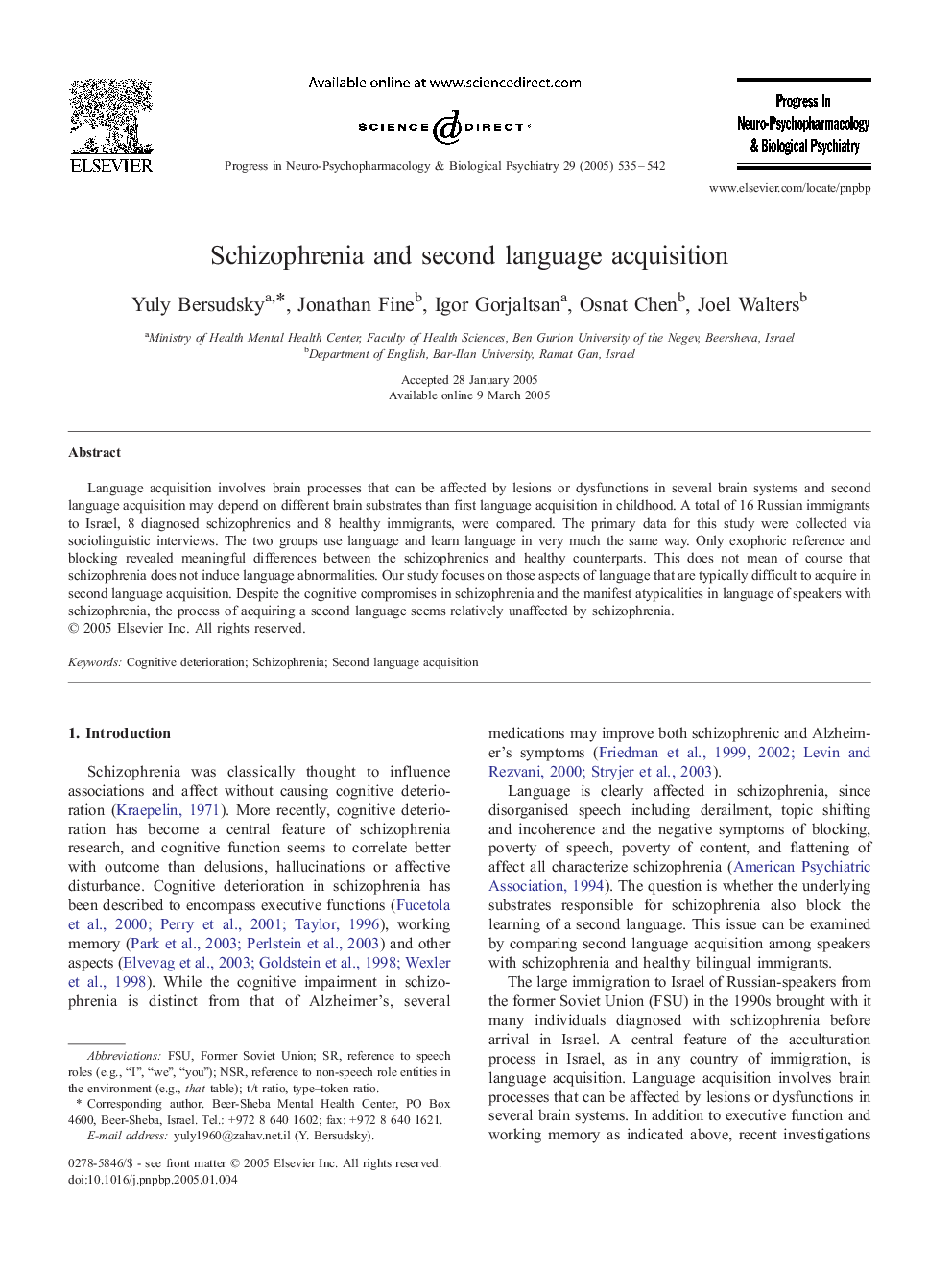| Article ID | Journal | Published Year | Pages | File Type |
|---|---|---|---|---|
| 9016415 | Progress in Neuro-Psychopharmacology and Biological Psychiatry | 2005 | 8 Pages |
Abstract
Language acquisition involves brain processes that can be affected by lesions or dysfunctions in several brain systems and second language acquisition may depend on different brain substrates than first language acquisition in childhood. A total of 16 Russian immigrants to Israel, 8 diagnosed schizophrenics and 8 healthy immigrants, were compared. The primary data for this study were collected via sociolinguistic interviews. The two groups use language and learn language in very much the same way. Only exophoric reference and blocking revealed meaningful differences between the schizophrenics and healthy counterparts. This does not mean of course that schizophrenia does not induce language abnormalities. Our study focuses on those aspects of language that are typically difficult to acquire in second language acquisition. Despite the cognitive compromises in schizophrenia and the manifest atypicalities in language of speakers with schizophrenia, the process of acquiring a second language seems relatively unaffected by schizophrenia.
Related Topics
Life Sciences
Neuroscience
Biological Psychiatry
Authors
Yuly Bersudsky, Jonathan Fine, Igor Gorjaltsan, Osnat Chen, Joel Walters,
